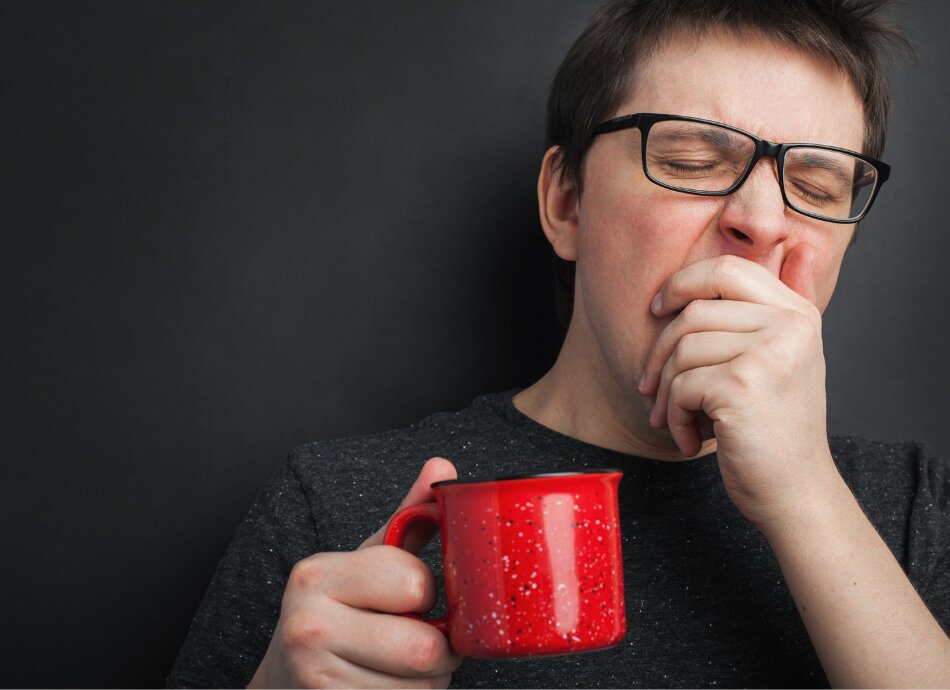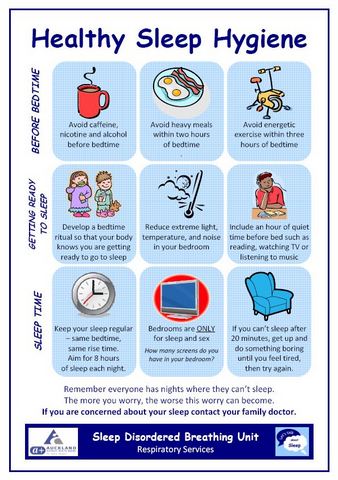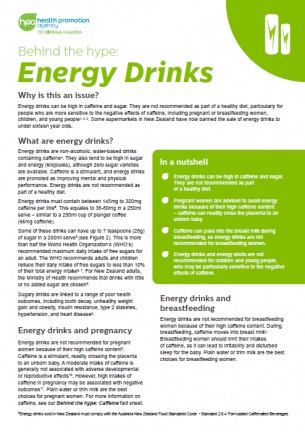Caffeine is a natural substance that is extracted from plants. This includes coffee beans, tea leaves and cocoa beans. Caffeine can also be produced synthetically (made by a chemical process). It is a stimulant, which means it helps you to be alert.
Caffeine is found in coffee, tea (black & green varieties), chocolate, energy drinks, soft drinks, weight loss supplements, kola nuts and some medicines, such as headache or cold/flu medicines. Read more about caffeine, including recommended amounts to have each day.
Low or no data? Visit zero.govt.nz, scroll down the page then click on our logo to return to our site and browse for free.
Sleep and caffeine
Key facts about sleep and caffeine
- Caffeine can add a burst of energy to your morning, but is not so helpful when you're trying to go to sleep.
- Caffeine takes many hours to be broken down in your body and can still be in your system more than 6 hours later.
- Caffeine is found in many drinks, foods and over-the-counter medicines.
- Too much caffeine can affect your sleep.
- You can reduce these effects by limiting how much caffeine you have and when you have it.

Caffeine stimulates your central nervous system. It does this by blocking adenosine, a substance in your body that makes you feel sleepy. This can make you more alert and give you a boost of energy – useful in the morning but not helpful if you are trying to go to sleep!
Caffeine begins to affect your body quickly. It reaches a peak level in your blood within 30–60 minutes. It has a half-life of 3–5 hours. The half-life is the time it takes for your body to get rid of half of it. The remaining caffeine can stay in your body for a long time, with one study reporting that a double expresso taken 16 hours before sleep still resulted in lighter sleep.
Caffeine can affect both the quantity and quality of your sleep.
It can make it hard for you to fall asleep. One study found that having caffeine 6 hours before bedtime reduced total sleep time by 1 hour. Caffeine also makes sleep lighter and reduces the amount of deep sleep you get. It also increases the number of awakenings you have during the night, making your sleep fragmented. It may also delay the timing of your body clock.
These effects also can be stronger if you are older, as it takes your body more time to process caffeine. Women and people who experience stress-related disturbed sleep are also more likely to feel the effects of caffeine on their sleep.
Video: How does caffeine affect sleep?
This video may take a few moments to load.
(Sleepstation, UK, 2013)
- Limit your caffeine intake to no more than about 300 mg to 400 mg per day. This is about 3–4 cups of coffee.
- Avoid caffeine in the late afternoon and in the evening.
Caffeine(external link) Health Promotion Agency, NZ, 2019
Healthy sleep hygiene [PDF, 306 KB] Auckland DHB, NZ
Energy drinks(external link) Health Promotion Agency, NZ, 2019
Sports drinks(external link) Health Promotion Agency, NZ, 2019
Common sleep problems(external link) Health Information Translations, 2020 English(external link), Arabic(external link), Chinese (simplified)(external link), Chinese (traditional)(external link), French(external link), Hindi(external link), Japanese(external link), Korean(external link), Nepali(external link), Russian(external link), Somali(external link), Spanish(external link), Vietnamese(external link)
References
- Sleep and caffeine(external link) Sleep Education
- Landolt HP, Werth E, Borbély AA, Dijk DJ. Caffeine intake (200 mg) in the morning affects human sleep and EEG power spectra at night(external link) Brain Res. 1995 Mar 27;675(1-2):67-74. doi: 10.1016/0006-8993(95)00040-w
Brochures

Health Promotion Agency, NZ, 2019

Auckland DHB, NZ

Health Promotion Agency, NZ, 2019
Credits: Healthify Editorial Team. Healthify is brought to you by Health Navigator Charitable Trust.
Reviewed by: Dan Ford, Behavioural Sleep Psychologist, Auckland
Last reviewed:
Page last updated:





